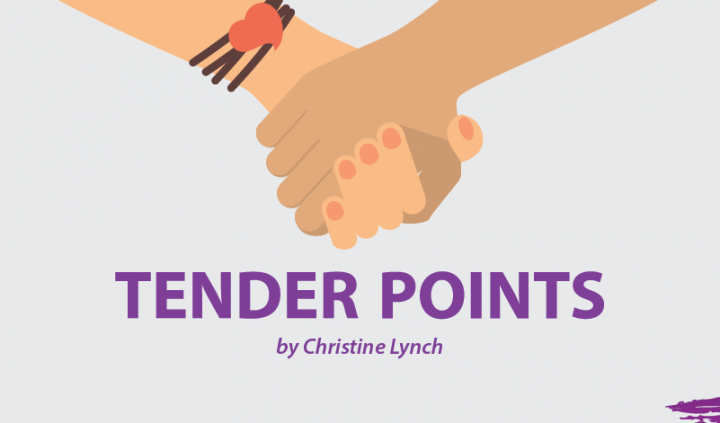If the statistics are correct, up to 70% of fibromyalgia patients suffer from irritable bowel syndrome (IBS). Few of us need an official awareness month to be reminded of its debilitating symptoms. Nevertheless, April is IBS Awareness Month, a good opportunity to discuss how it affects us.
For any reader who has been fortunate enough to have avoided this common nightmare, here it is in a nutshell: IBS causes abdominal pain, cramping, food intolerance, bloating (I have at least two sizes of clothing hanging in my closet at all times), and changes in stool (diarrhea, constipation, or a combination of both).
Not only are most of us totally aware of these symptoms, we also are likely governed by them. Unlike the many other issues we deal with regularly — including total body pain and fatigue — IBS symptoms often determine the activities we can or can’t do. In short, they rob us of many joyful moments that others take for granted.
The difference is in the ability to function. It’s possible to do something you need or want to do if you’re experiencing total body pain or fatigue. It may not be pleasant, but it’s possible. You fake a smile and employ every distraction technique you know. Then you face the world the best that you can for as long as you can.
However, if you’re doubled over with abdominal pain or unsure of the safe distance to the bathroom, you just can’t pretend. The total number of business meetings, vacations, social occasions, family events, and performances I have canceled in my life is equal to or greater than the number I’ve managed to attend.
I can see some readers nodding their heads. I know I’m not alone in this. But that doesn’t make it any easier.
Here I must acknowledge the great love and understanding I’ve experienced from my husband, who has lived my “cancellation life” with me. His patience and perseverance to say, “It’s all right. I understand why we can’t go,” over and over is truly remarkable.
Making the difficult but necessary cancellation phone call while I’m incapacitated is another overwhelming kindness in my mind. So, to my husband and to all the other husbands, wives, and significant others who share our IBS turmoil, I extend my sincerest admiration and gratitude.
The question becomes what can we do about it? Sadly, the cure remains elusive. Only a few medications control IBS. None of them worked for me.
Dietary changes also are recommended, and they work for some people. My gastroenterologist suggested the FODMAP diet. I followed it religiously for more than a year, but I noticed little improvement.
In addition, the diet was limiting and inconvenient. Occasionally I had no choice but to cheat. The result was sometimes negative, sometimes not. I’m still unsure whether eating this way is helpful or not, but I’m too frightened to totally disregard it.
Problematic foods appear to be different for everyone. Knowing your triggers and avoiding them is key. My triggers appear to be gluten, dairy, soy, and onions. Wine and chocolate are sometimes offenders, other times not.
Be aware that your triggers may be completely different than mine. To identify your own, try keeping a food diary. It’s an excellent tool that I continue to use.
Avoiding stress is always helpful, although not always possible. These are stressful times. And unforeseen events do occur.
Then there are folks like me who just have anxious personalities. I’ve been a worrier since childhood, and I’ve become really good at it. I even worry about having IBS — about the next event I’ll miss, the next person I’ll disappoint, the next commitment I won’t be able to keep. It’s a never-ending worry.
The upside is that no matter how life-altering and inconvenient it is, IBS has no deleterious effect on the body. According to the medical community, it will not cause permanent organ damage or kill you. Compared to many issues faced by people with other rare diseases, this is truly cause for gratitude.
And who knows? Perhaps the right person or organization will take notice of IBS Awareness Month and discover the cure we all need!
***
Note: Fibromyalgia News Today is strictly a news and information website about the disease. It does not provide medical advice, diagnosis, or treatment. This content is not intended to be a substitute for professional medical advice, diagnosis, or treatment. Always seek the advice of your physician or other qualified health provider with any questions you may have regarding a medical condition. Never disregard professional medical advice or delay in seeking it because of something you have read on this website. The opinions expressed in this column are not those of Fibromyalgia News Today, or its parent company, BioNews Services, and are intended to spark discussion about issues pertaining to fibromyalgia.


Years before I was diagnosed with fibromyalgia I was treated for microscopic colitis. It was as you mentioned a nightmare to say the least. I still managed to work full time but racing to the women’s room was constant. Fortunately I never “exploded” at work or outside my home. It was extremely draining on my daily life. I was very lucky to have an extremely compassionate GI Dr who truly cared & answered all my questions. Then all of the sudden it stopped completely. However I know wonder if it was a precursor leading to fibromyalgia. I’ll never know the answer. I have total compassion for anyone suffering from IBS or any/all the extras added to fibromyalgia.